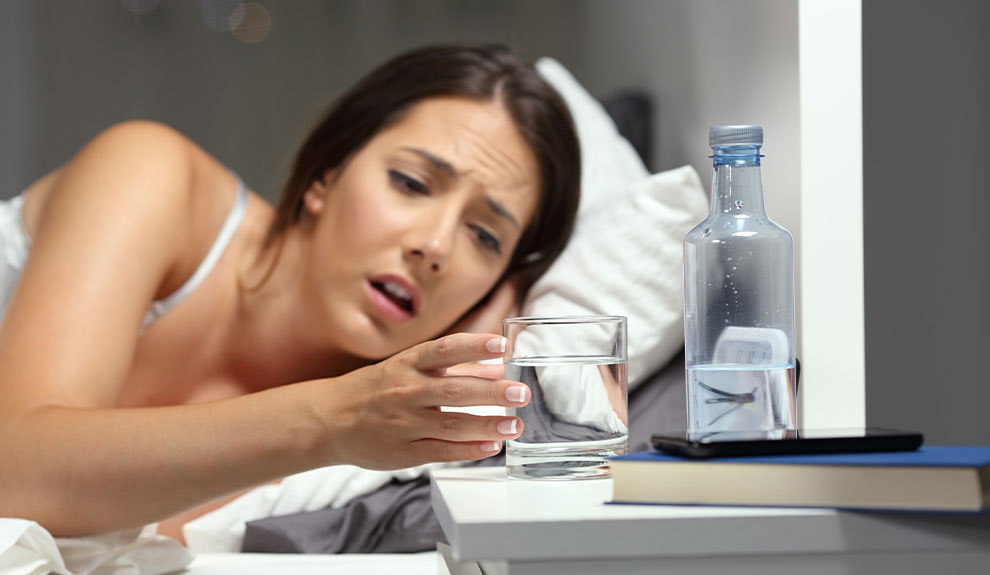
Failure to drink enough water during the day leads to a lack of sleep at night due to dehydration. How is this possible? And what measures can be taken? Let's take a closer look at this problem and find out what we can do to prevent it.
The consequences of dehydration
If we do not drink an adequate amount of water, our body produces a substance called vasopressin, an anti-diuretic hormone that opposes fluid loss. This unfortunately causes us to wake up earlier, which is why drinking less than we should also causes us to sleep less. But that's not all: dehydration also causes headaches and muscle cramps, which in the long run result in being tired and weary throughout the day.
Better hydration means better sleep
It is certainly wise to drink at the right frequency during the day: the optimal average amount of water to consume daily is about two liters. Although you may have to force yourself a little at first if you are not used to it, over time it will easily become a routine action. To make sure that you do not have to go to the bathroom during the night (waking up and nullifying the benefit you are supposed to get from your sleep), it is best not to stop your intake of liquids a couple of hours before going to bed. Your evening meal also plays a role here: alcohol, coffee, spices, and spicy condiments are all elements that should not be overdone if you want to avoid feeling overly thirsty in the hours that follow.
A few simple steps have a great beneficial effect on our bodies. Ensuring adequate, quality rest is the key to getting up rested and able to face the new day with energy and vitality. We at Magniflex know this well: “We bring your days to life at night” is our claim, and the tips we are giving you here have exactly that purpose!

